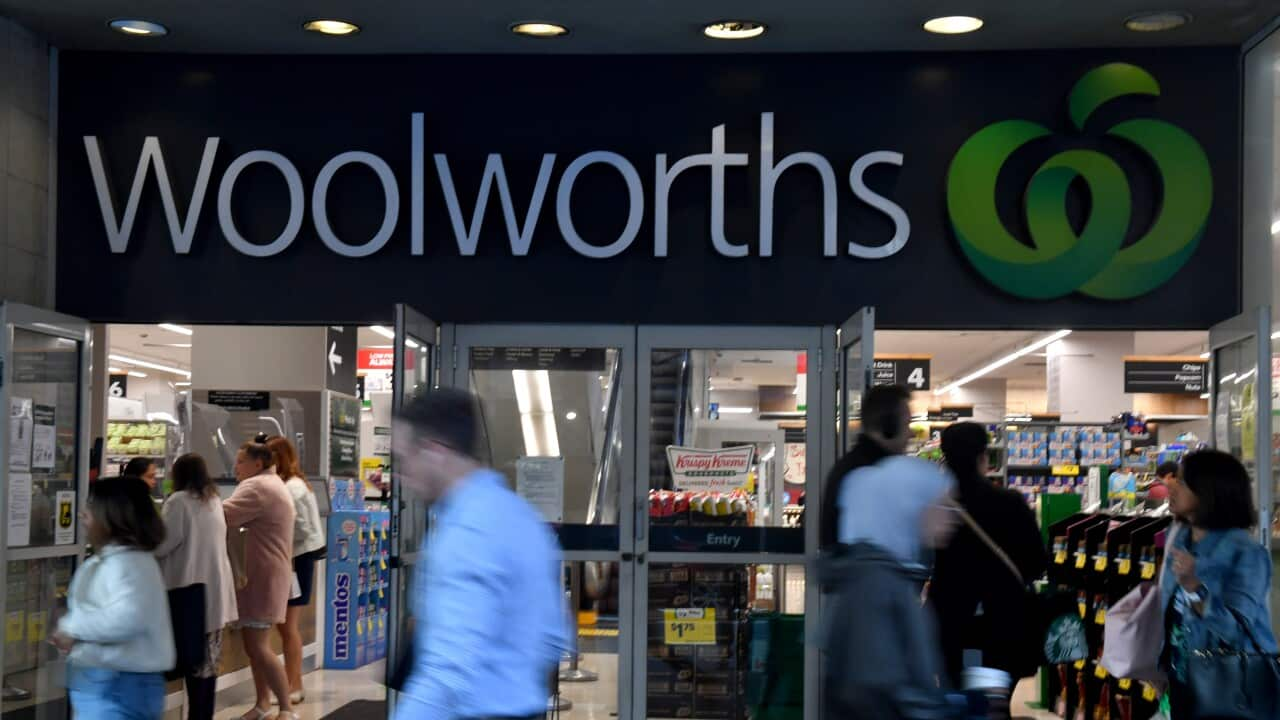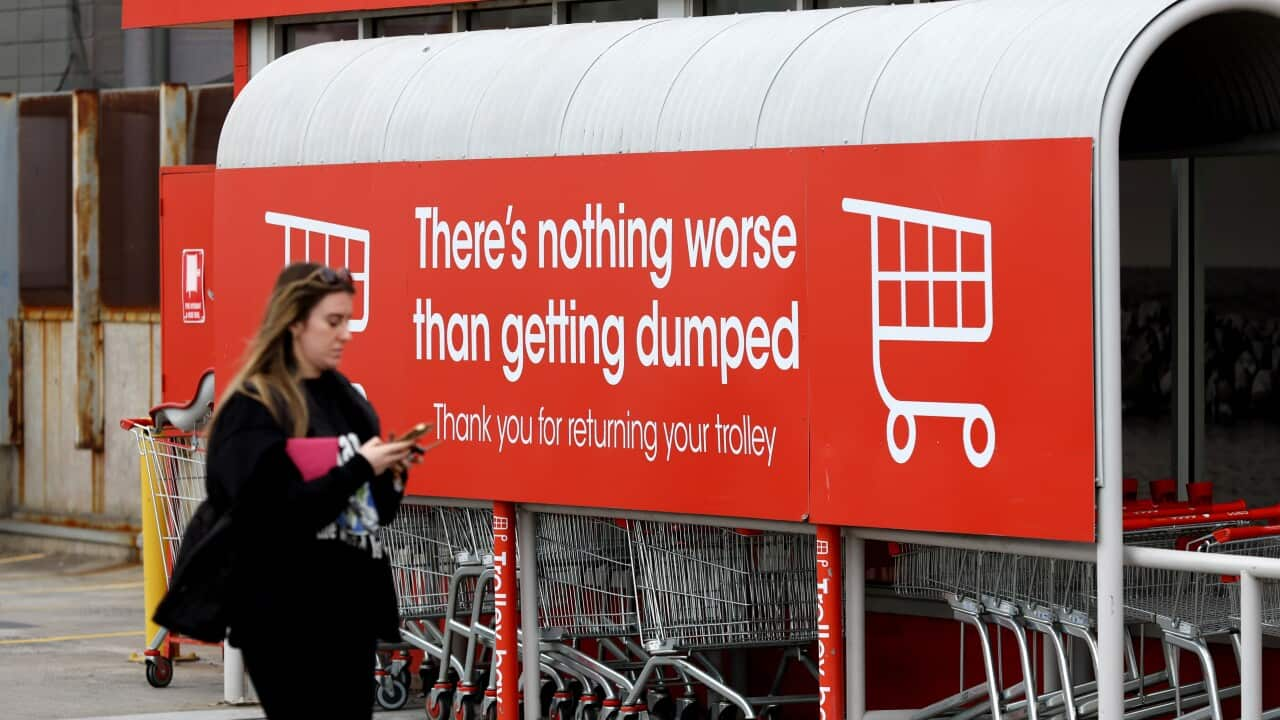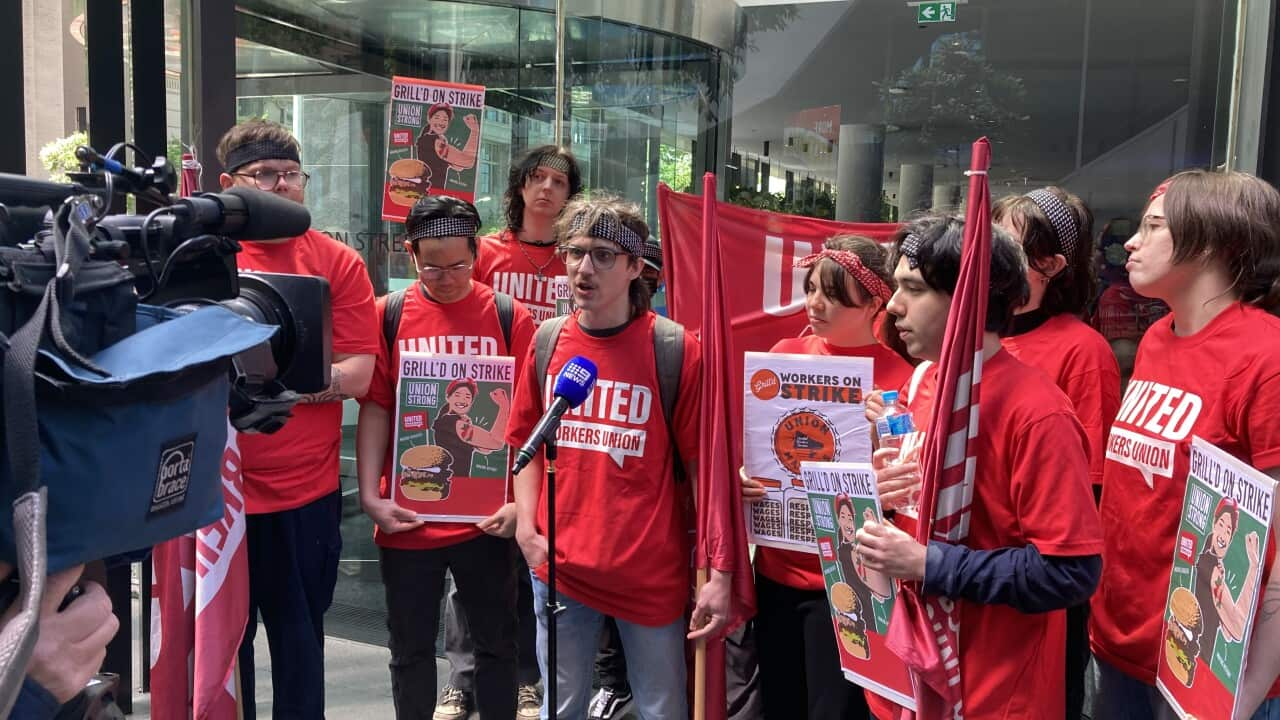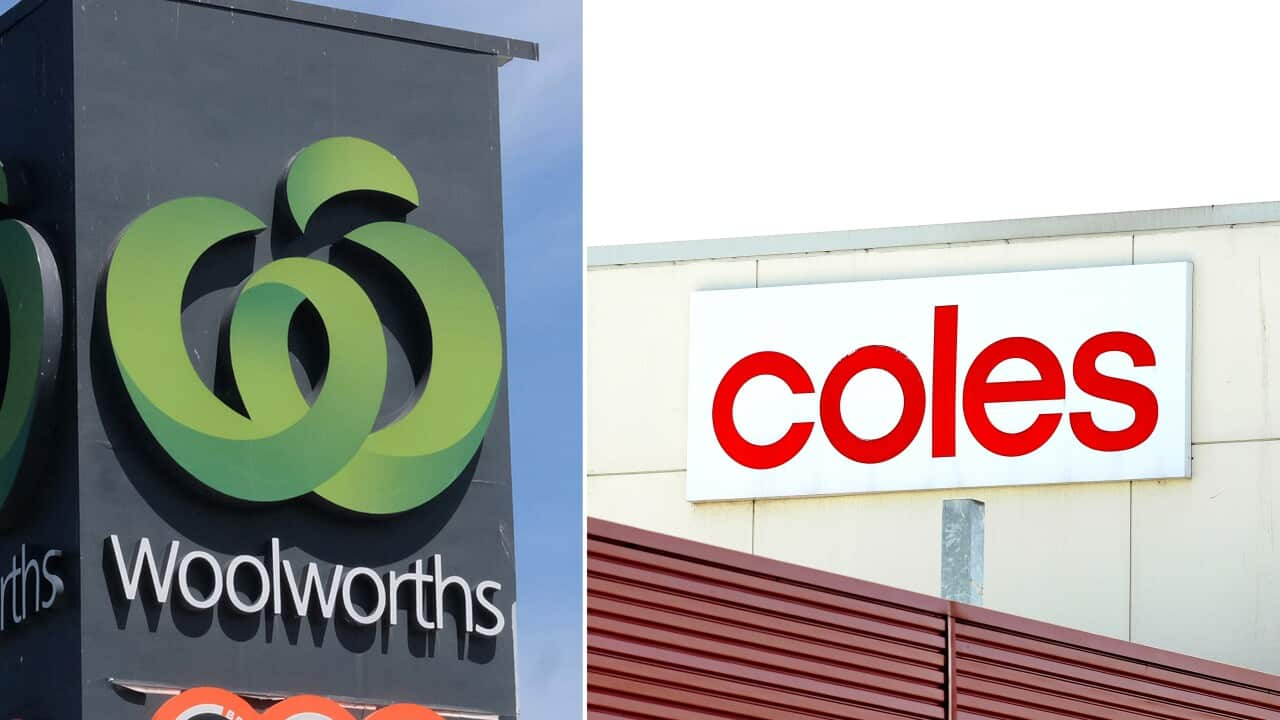Key Points
- United Workers Union members voted to take indefinite strike actions in four Woolies warehouses.
- Between 1,500 and 1,700 workers will be involved in the potential strikes.
- One of the issues the workers want to be addressed is the company's worker-performance management program.
Toilet paper, bread, butter, milk, eggs and alcohol are just some of the products that could be impacted by potential Woolworths worker strikes leading up to Christmas.
United Workers Union (UWU) members voted on Tuesday to take indefinite strike actions in four Woolies warehouses in Victoria and NSW towards the end of next week unless they reach a deal with the supermarket giant.
UWU has three main demands:
- A change in the company's performance management program, which they believe is unsafe
- Equal pay for workers with similar tasks
- A wage rise above the rate of inflation.
UWU national secretary Tim Kennedy told SBS News that Woolworths "don't seem to be prepared to acknowledge the fundamental dignity of their workers or of their customers".
The vote came after the workers had stopped working for one hour in three distribution centres earlier in the week.
Kennedy said that there has never been a "potential industrial action on this scale before in supermarket warehouses in Australia".
Supermarkets will 'be affected in the lead-up to Christmas'
Between 1,500 and 1,700 workers will be involved in the potential strikes in warehouses in western Sydney, western Melbourne, south-east Melbourne and on the NSW/Victorian border.
"We've never had four warehouses take industrial action together. The effect will be significant down the entire east coast of Australia. These warehouses move something like five million cartons a week," Kennedy said.
"If those things aren't moving, then supermarket supply will be affected quite dramatically in the lead-up to Christmas. It's the busiest time of year for Woolworths, and so that will have a big impact."
A spokesperson for Primary Connect, Woolworths Group's supply chain arm, told SBS News: "We have not received any formal notice of further industrial action from the union after one-hour work stoppages earlier this week".
Kennedy said industrial action might affect various products such as "bread, cereals, toiletries, toilet paper, milk, eggs, butter, and all the necessities that you need to get from the supermarket".
"These warehouses deal with every product that goes through a supermarket. So, every product could be affected, some more so than others."

United Workers Union members voted on Tuesday to take indefinite strike actions in four Woolworths warehouses in Victoria and NSW after stopping work for an hour in three distribution centres earlier in the week. Credit: United Workers Union
Woolworths said it has a backup plan in case the strike intensifies and has noted that the rest of the supermarket's 16 distribution centres will continue operating.
"In the case that industrial action does escalate, we have contingency plans in place to ensure minimal disruption to customers, including building up stock in stores and utilising our other distribution centres," Primary Connect's spokesperson said.
What are the workers demanding?
One of the issues the workers want addressed is the company's worker-performance management program — known as 'the framework' — which it uses across its warehouses.
The union says the company wants workers to maintain 100 per cent adherence to its set pick rate — the number of orders processed over a period of time. Total adherence to the pick rate was previously a goal rather than a requirement.
"[It] is punitive, it's unsafe, and it's being used to discipline and potentially terminate people. We want the company to stop that because it's not a way to treat people," Kennedy said.
Primary Connect introduced the framework in early 2024. In a memo to its staff, the supermarket giant said it was "intended to standardise our approach to managing performance across all of our distribution centres".
Primary Connect's spokesperson said the framework "is intended to enable us to work with each team member to the best of their ability to ensure a fair approach to standards is applied to any personal circumstances or abilities".
According to the spokesperson, less than 2 per cent of the workers have experienced coaching or retraining to improve productivity under the framework.
UWU is also demanding pay standardisation among workers and a wage rise above the rate of inflation.
"We want workers to be paid the same, for the same work that they perform in the Woolworth's network," Kennedy said.
The union wants all workers to be paid at least $38 per hour in the first year, "with percentage wage increases in following years and a national agreement so that workers are paid the same pay for the same work", he added.
"The workers' wages need to go forward above inflation so they can actually improve their position in the world."
The Primary Connect spokesperson said: "We have already put forward several offers with competitive pay that is above industry standards, above local market rates, and well above the award."
In June, almost 100,000 Woolworths workers voted for a 3.75 wage increase, one of the largest Enterprise Bargaining Agreement (EBA) votes in history.
Kennedy said workers "want to reach an agreement on fair and just terms. And that's important. It is up to Woolworths now, and it's well within their capacity to do something here".
"If we can't reach an agreement, strike action will be ongoing, and it will impact Christmas."













